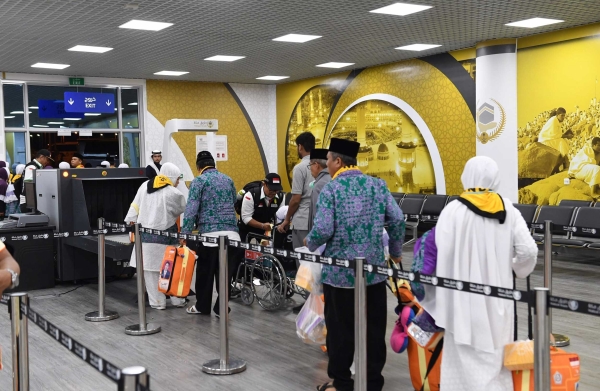
Law of Transporting Pilgrims to Saudi Arabia and Returning Them to Their Countries



The Law of Transporting Pilgrims to the Kingdom of Saudi Arabia and Returning Them to Their Countries represents a set of legal rules regulating entities transporting pilgrims. It sets out the duties and obligations of the entities transporting pilgrims from and into the Kingdom. It also prescribes the sanctions imposed upon those violating the Law of Transporting Pilgrims and identifies the competent authority for applying these sanctions.
Historical overview of the Law of Transporting Pilgrims to the Kingdom and Returning Them to Their Countries
The Law of Transporting Pilgrims to the Kingdom and Returning Them to Their Countries was promulgated in 2005. It consists of twenty-four articles. It replaced the previous Law of Transporting Pilgrims to the Kingdom and Returning Them to Their Countries, promulgated by Royal Decree in 1970. It also revoked any provisions conflicting with it.
In 2008, amendments were introduced to several articles of the law. Amendments covered many topics. As such, amended articles stipulated that the entity transporting foreign pilgrims should have an authorized agent to carry out the agency's business. The agent should submit air flight and maritime travel programs before the competent entities for approval. It should also provide the competent entity with a financial bond covering air or maritime transportation.
Other amended articles of the Law of Transporting Pilgrims to the Kingdom and Returning Them to Their Countries determined the competent entity for imposing sanctions upon those violating the Law of Transporting Pilgrims, where this entity would be competent in investigating, establishing, or adjudicating upon a violation.
Details of the Law of Transporting Pilgrims to the Kingdom and Returning Them to Their Countries
The Law of Transporting Pilgrims to the Kingdom and Returning Them to Their Countries defines the individual or legal person representing the entity transporting pilgrims, being the entity that transports pilgrims, by themselves or via another party, to the Kingdom, whether by using means of transportation they own or that are owned by others. The law also defined the partner entity transporting pilgrims as the investor or owner of the means of transportation used for transporting pilgrims. Partner entities transporting pilgrims are subject to the provisions stipulated under the Law of Transporting Pilgrims.
Sanctions prescribed under the Law of Transporting Pilgrims to the Kingdom and Returning Them to Their Countries
The Law of Transporting Pilgrims to the Kingdom and Returning Them to Their Countries stipulated six articles prescribing sanctions to be imposed on those violating its provisions. Upon the law's promulgation, sanctions were limited to fines. However, another article allowing for the defamation of violators was subsequently added. The law prescribed sanctioning any air or maritime means of transportation carrying pilgrims, that did not reach or leave the Kingdom within the permitted timeframe for each trip's arrival or departure. In this case, violators would be subject to a fine amounting to SAR10,000 for each arrival trip and SAR15,000 for each departure trip. The sanction would be enhanced in case departure trips were delayed for more than twenty-four hours. Any air means of transportation carrying pilgrims to the Kingdom without being part of the approved pilgrims' trips programs would be subject to a sanction amounting to SAR20,000 for each trip.
Any land or maritime means of transportation carrying pilgrims and reaching the Kingdom after the expiry of the timeframe determined for pilgrims' arrival would be subject to a fine of SAR100 for each of the carried pilgrims. The entity responsible for air means of transportation carrying pilgrims and reaching the Kingdom after the expiry of the timeframe determined for pilgrims' arrival would be subject to a fine of SAR1,000 for each of the carried pilgrims. If the number of pilgrims was less than a hundred, the fine imposed upon each air carrier should amount to no less than SAR100,000. Violations would not prevent pilgrims' entry to the Kingdom to perform Hajj rituals.
The entity responsible for the pilgrims' means of transportation attempting to or leaving the Kingdom without obtaining a take-off permit would be subject to a fine of no less than SAR20,000 and no more than SAR100,000. Any person assisting the pilgrims' means of transportation in attempting to leave without completing the statutory procedures would be subject to a fine of no less than SAR10,000 and no more than SAR50,000.
The entity responsible for carrying pilgrims by air or sea that did not submit a manifest of the pilgrims upon arrival, where the manifest lists their names, nationalities, and passport numbers, among other required data, or that delays such submission, will be subject to a fine, along with his agent, of no less than SAR20,000 and no more than SAR50,000 for each trip.
Another article that was added to the law pursuant to a Royal Decree issued on September 1, 2015, stipulated that a summary of the sanction decision should be published, at the violator's expense, in a local newspaper issued in the violator's place of residence. If no newspaper exists in their place of residence, it may be published in the nearest region, in any other appropriate medium, or both, depending on the type and severity of the violation and its impact. Publication should occur after the judgment becomes final, either by the lapse of the legally specified period or by being upheld by the competent court.
Related quizzes
Related articles

